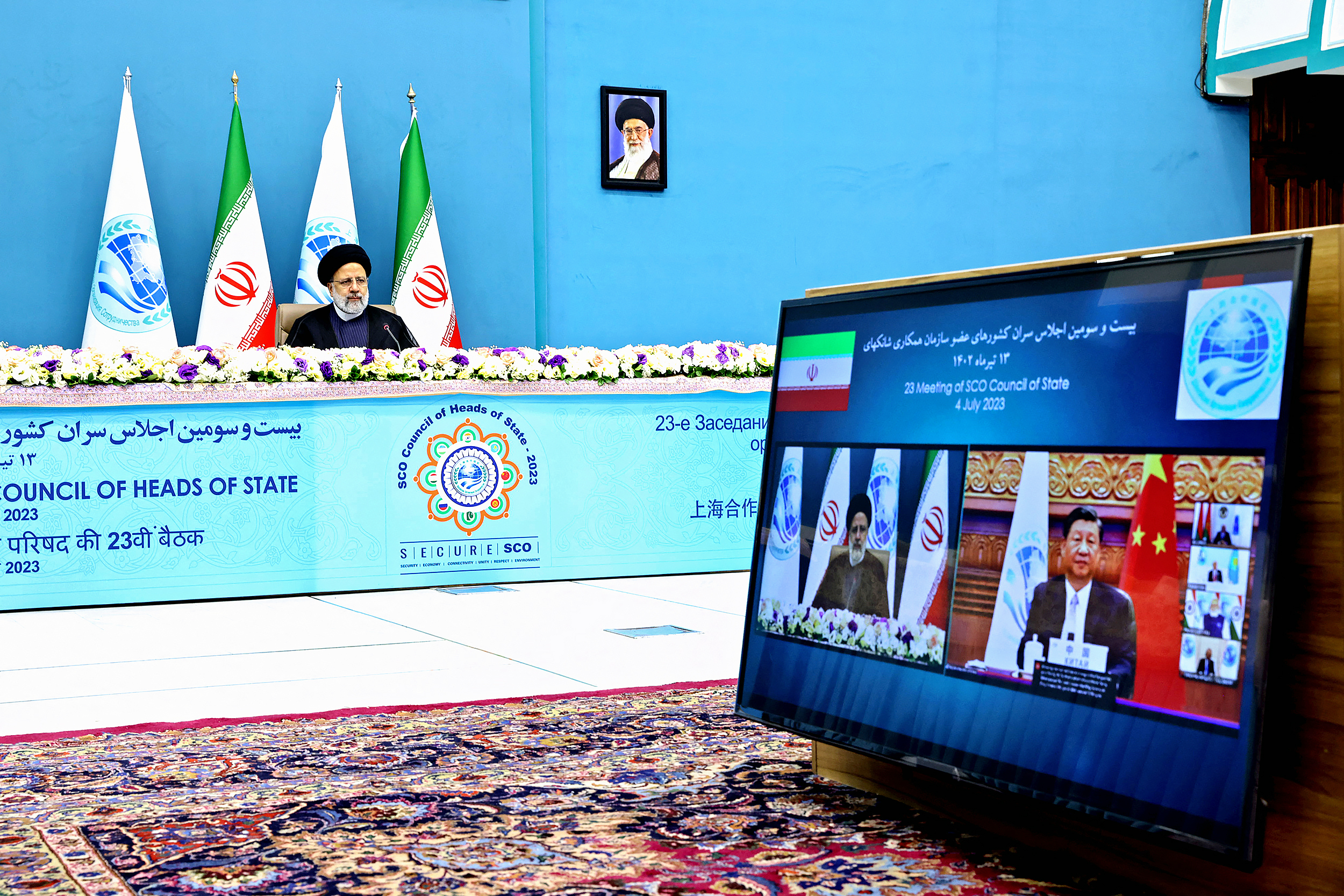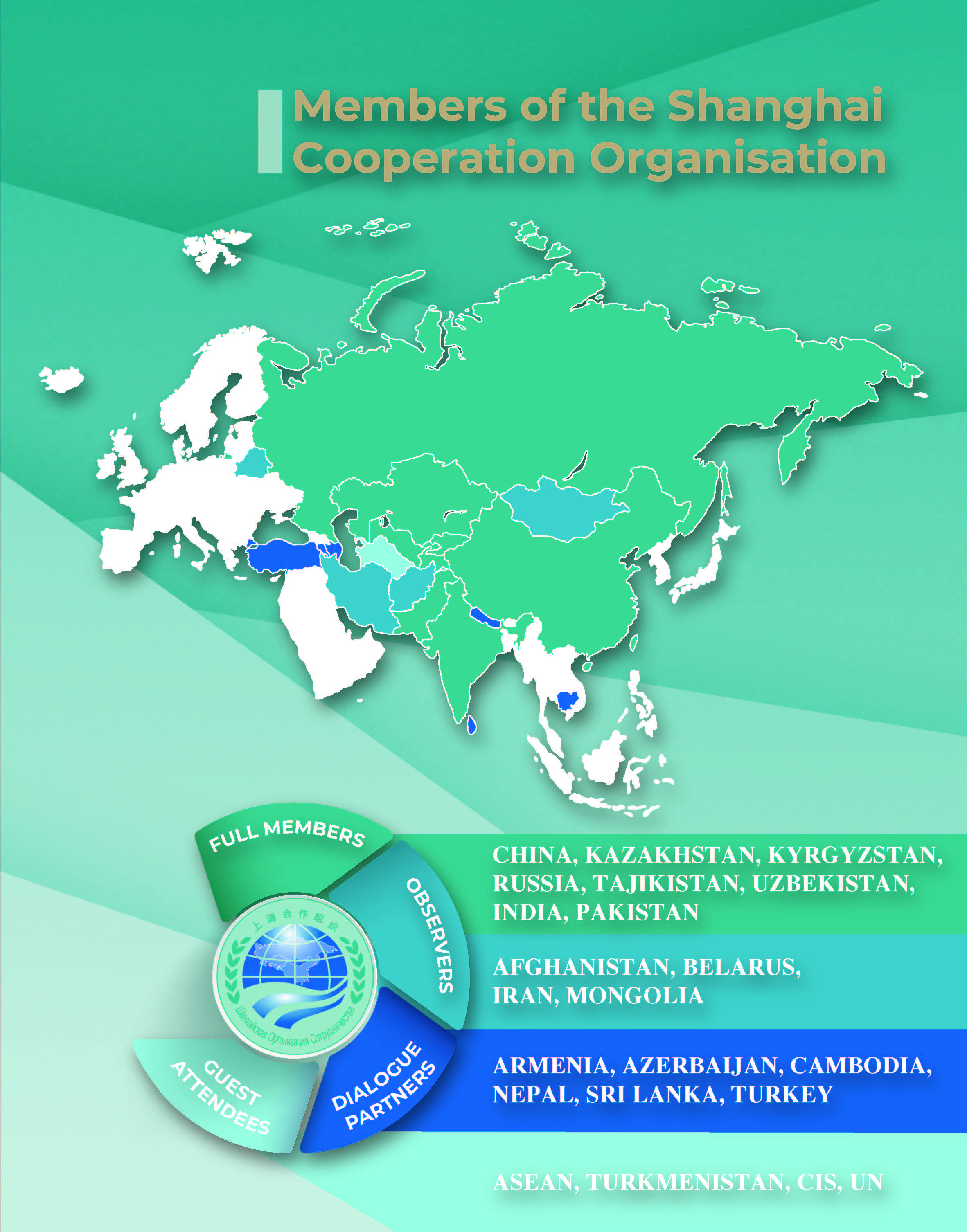
“The member states stressed the historical significance of the admission of the Islamic Republic of Iran to the SCO as a full Member State,” said the New Delhi. Indian Prime Minister Narendra Modi, who hosted the virtual summit, said he was “happy Iran is becoming a member of SCO,” adding that the grouping had also paved the way for Belarus to become a permanent part of the bloc. Iran joins China, Russia, Kazakhstan, Kyrgyzstan, Pakistan, Tajikistan, India and Uzbekistan as full members.

The importance of accession from the Iranian point of view
Iran welcomed the opportunity to gain access to Eurasian trade routes and urged other members to create a mechanism to help Iran circumvent Western sanctions. The benefits of SCO membership are potentially significant for Iran. Due to its geopolitical location and energy resources, the country can become an important trading partner in the Middle East and will certainly work to strengthen its relations with the other member states.
Given the comprehensive strategic partnership agreement Iran signed with China in 2021 and a similar agreement the Middle Eastern country signed with Russia in 2001, Iran’s full membership in the SCO was widely seen as inevitable. Al Jazeera reports that previous applications by Iran for SCO membership were blocked because the country was under UN sanctions and some members, including Tajikistan, refused to join because Tehran believed the country supported terrorism. The Diplomat reports that the signing of the document on Iran’s full membership in the SCO heralds a new phase of cooperation with other countries.

The SCO as the strongest anti-Western pole?
Both the SCO and BRICS member states are eager not to be controlled by Western countries through the means of imperialism and economic domination. Recently, Russia has tried to position the SCO as a kind of anti-NATO organisation. It advocated strengthening the military dimension of the bloc and proposed joint military exercises on Russian soil. Moscow sees the SCO as the core of an anti-Western bloc led by China and Russia.

It should not be forgotten, however, that the interests of the organisation’s member countries do not point in the same direction in many respects. For Chinese President Xi Jinping, participation in the summits provides an opportunity to regularly reinforce China’s position and reaffirm that it is an important player in Eurasia, including through the “Belt and Road Initiative”. Some countries with strained relations with the West are understandably critical of Western policies and present the SCO as a possible alternative to Western influence. However, this approach does not necessarily mean that the SCO has become a unified anti-Western alliance. Such assumptions ignore the different interests of all members of the organisation. Far from being organised against the West, the SCO contributes to the functioning of the multipolar world order.
The author is a researcher at Eurasia CenterChina and Russia are looking to expand the Shanghai Cooperation Organisation by reaching out to countries sanctioned by the West and offering “alternative options” to the established order, analysts told the South China Morning Post. Although the bloc initially focused on security, the current climate and impact of Russia’s invasion of Ukraine have also driven efforts to boost its economic role, the newspaper wrote. By including Iran and putting Belarus on track for membership it had “sent a signal” to the world that there were options for greater Eurasian integration and to counter the Western liberal order, said Ilayda Nijhar, a global risk analyst at ODI, a global affairs think tank. “We are seeing the SCO increasing in popularity across ‘non-aligned’ parts of the world … Geopolitically, China and Russia are looking to play the long game here,” she said.